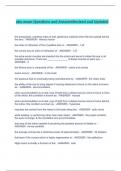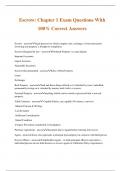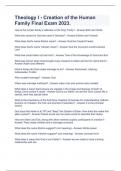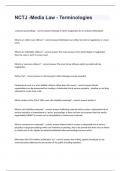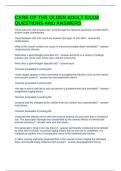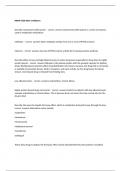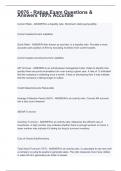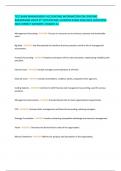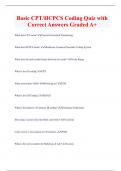Exam (elaborations)
abo exam Questions and Answers Revised and Updated
- Course
- Institution
abo exam Questions and Answers Revised and Updated the transparent, colorless mass of soft, gelatinous material which fills the eyeball behind the lens: the extra-ocular muscles are inserted into the sclera and serve to rotate the eye in all possible directions. There are _______________ of t...
[Show more]
